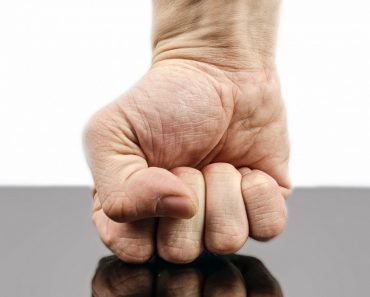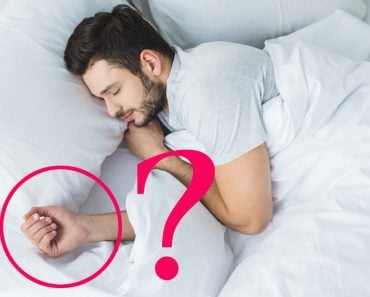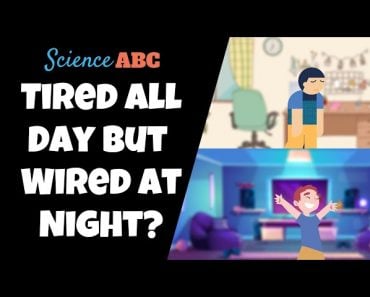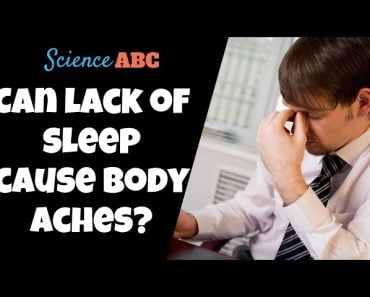Table of Contents (click to expand)
There are many possible explanations for hypnic jerks, or involuntary twitching while falling asleep. One hypothesis suggests that it is a remnant of when our primate ancestors slept high in trees, and the jerking motion helped to prevent them from falling out. Another hypothesis claims that the brain jolts the muscles in order to prevent the person from dying, as certain changes occur in the body during the onset of sleep.
Sleeping is easily one of the best things in life. The idea of a soft, comfy bed and a nice pillow, coupled with soothing ambience, means the world to almost every ‘sleep lover’, including myself.
Sleep is not just amazing; it’s also rather mysterious! I call it ‘mysterious’ because there are far too many things that we still do not completely understand about sleeping. For example, we might have a number of hypotheses and ‘educated guesses’, but we don’t really know the exact reason why we fall asleep in the first place!
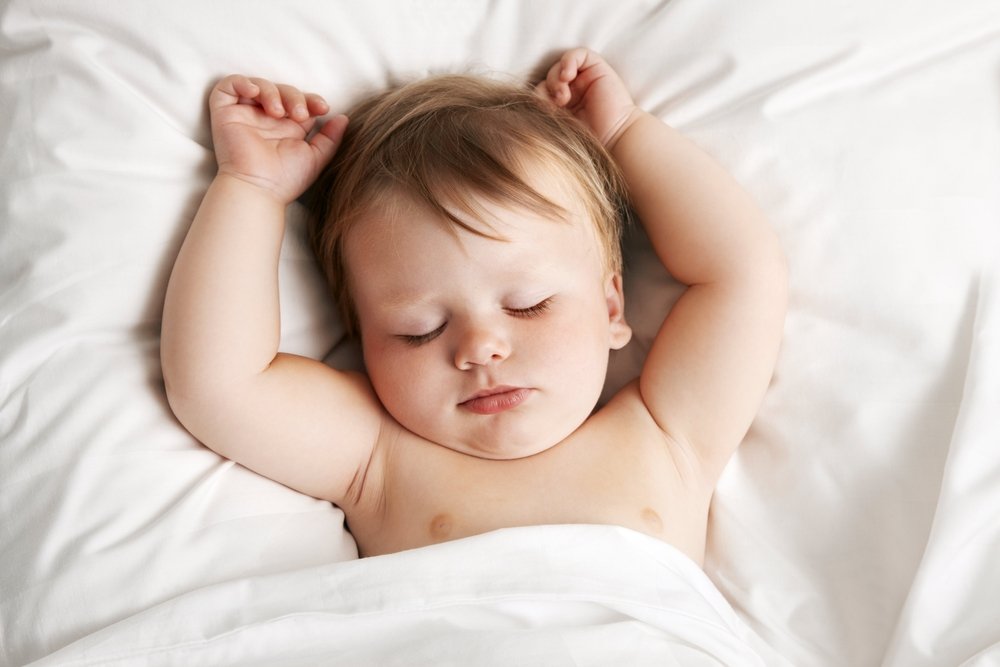
That’s just one example, but sleep is also home to a number of rather interesting natural and biochemical processes that occur within the body. One of them is involuntary twitching, something that we are going to discuss in this article.
Recommended Video for you:
Involuntary Twitching During Sleep
You may have noticed that, as you are about to fall asleep, your body twitches involuntarily, for no particular reason. It’s even easier to notice this when someone next to you is falling asleep (full disclosure: it might even creep you out a little bit at first!).
There are quite a few reasons why people twitch during their sleep, but one of the most common kinds of twitching is known as a hypnic jerk.
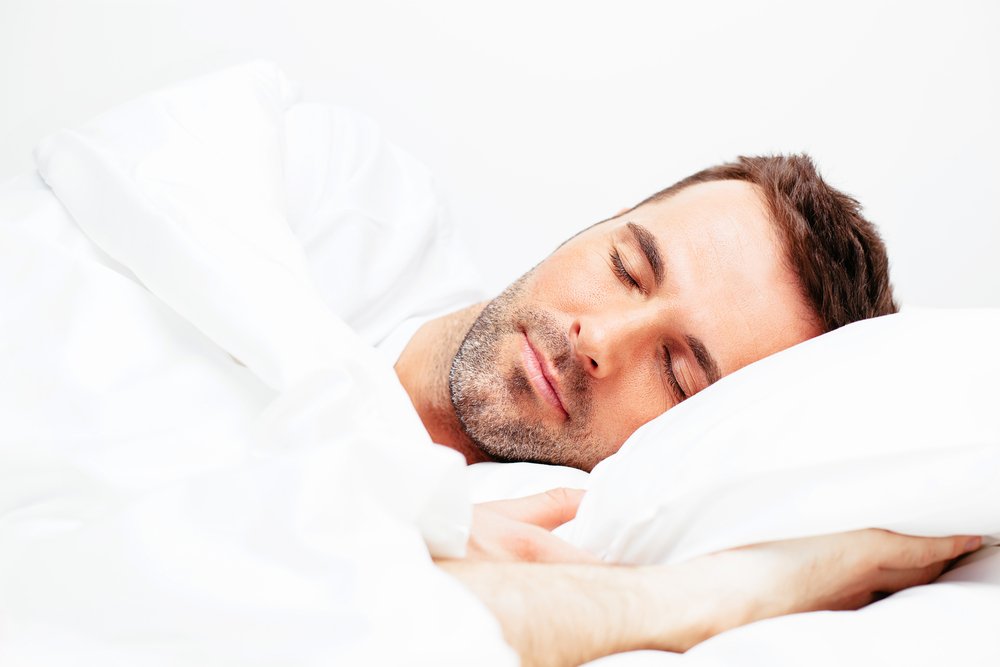
Hypnic Jerk
Hypnic jerks are sudden but brief contractions of one or more limbs – or the whole body – as a person begins to fall asleep or is already in a sleep stage. Also referred to as a hypnagogic jerk or sleep start, a hypnic jerk commonly causes people to awaken suddenly (for a moment or two). In purely physical terms, a hypnic jerk resembles a ‘jump’ experienced by a person who’s startled, which is why it’s accompanied by a falling sensation. If you really think about it, the sensation of falling while sleeping is sort of weird, right?
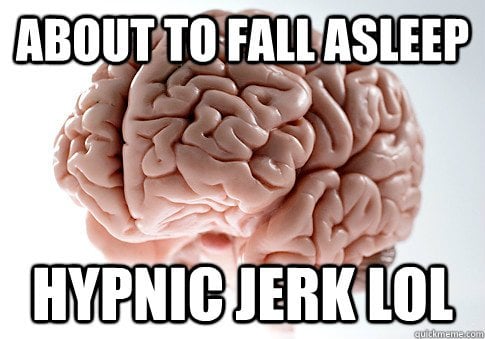
Not only that, but sleep starts are also associated with a quickened heartbeat, sudden sweating and sometimes “a peculiar sensory feeling of ‘shock’ or ‘falling into the void’.
What Causes Hypnic Jerks?
According to the American Academy of Sleep Medicine, there are many things that might be potential causes of hypnic jerks, including anxiety, stress, excess caffeine and strenuous activities, but most hypnic jerks occur absolutely randomly in healthy individuals.
An interesting hypothesis regarding the cause of hypnic jerks delves into the idea of evolution. According to Frederick Coolidge, a psychologist at the University of Colorado, a hypnic jerk could be “an archaic reflex to the brain’s misinterpreting the muscle relaxation accompanying the onset of sleep as a signal that the sleeping primate is falling out of a tree.”
Allow me to explain this in simple terms: imagine an animal that sleeps high up in trees. That’s quite dangerous to begin with, isn’t it? As such, if the animal falls into a deep sleep, it could risk falling out of the tree and being seriously hurt, or possibly even die!
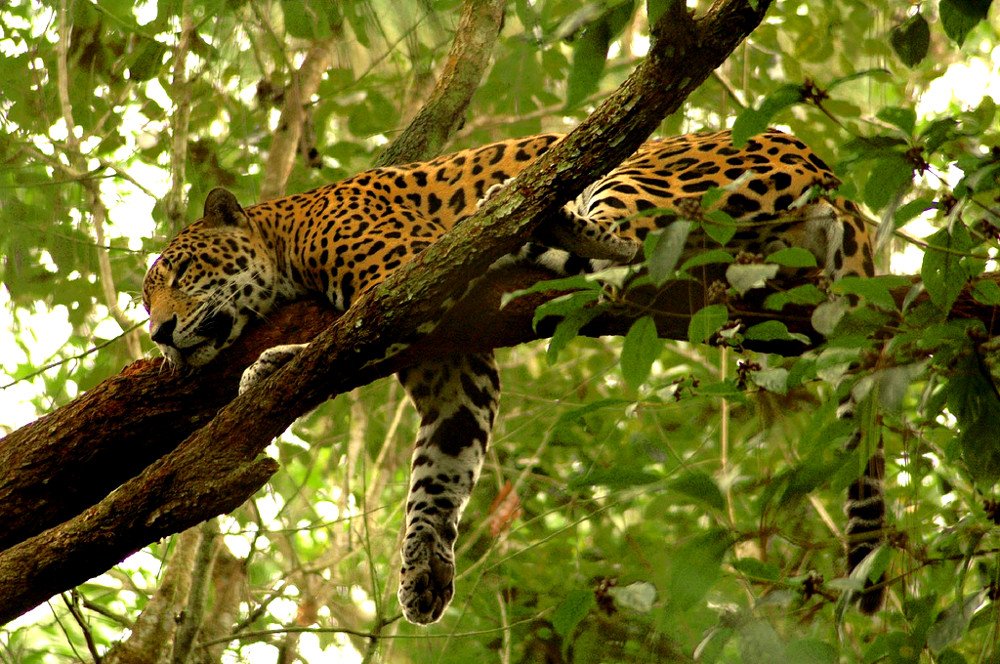
Now, suppose some of these animals wake up with a sudden start when they feel that they are falling. They obviously wouldn’t fall to their death, thanks to the fact that they are now awake and can adjust to a safer position. Thus, animals that experience the hypnic jerk have a much higher chance of living longer than those who don’t experience it. As such, they are more likely to pass on their ‘hypnic jerk’ genes to their offspring, who would also experience a hypnic jerk, and thus live longer.
The cycle goes on and on, and voila! That’s evolution!
Therefore, it’s often claimed that hypnic jerks in humans are actually a remnant of the time when our primate ancestors slept high on tree branches to protect themselves from wild beasts that lurked in the dark.
Another hypothesis proposes that you experience hypnic jerks as you start entering sleep because your brain ‘thinks’ that you are actually dying (due to certain changes that occur within your body at that time, such as dipping body temperature etc.). As a result, your brain jolts your muscles to ensure that you don’t die!
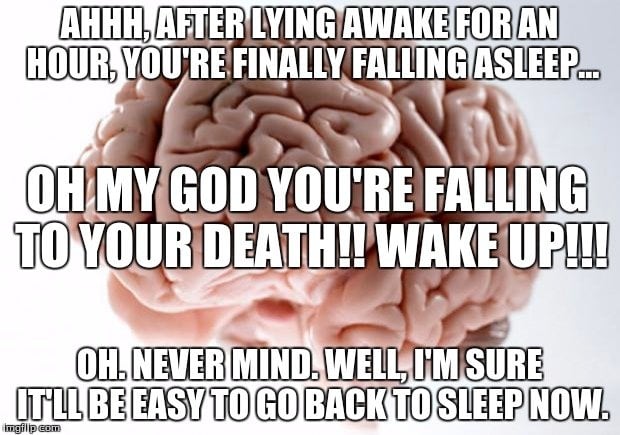
According to this hypothesis, when you sleep, part of your brain goes to sleep and starts dreaming, but it doesn’t shut down the part that keeps you conscious and controls your motor functions. That’s why you experience sudden spasms when you’re beginning to sleep; it’s even more common when you are overly tired. when you sleep, part of your brain goes to sleep and starts dreaming, but it doesn’t shut down the part that keeps you conscious and controls your motor functions. That’s why you experience sudden spasms
References (click to expand)
- Calandra-Buonaura, G., Alessandria, M., Liguori, R., Lugaresi, E., & Provini, F. (2014, June). Hypnic jerks: neurophysiological characterization of a new motor pattern. Sleep Medicine. Elsevier BV.
- Jolt on the way to dreamland: Hypnic jerk | Go Ask Alice! - goaskalice.columbia.edu
- Why do we sometimes "twitch" right before we fall asleep?. The University of California, Santa Barbara
- Coolidge, F., & Wynn, T. (2006). The effects of the tree-to-ground sleep transition in the evolution of cognition in early Homo. Before Farming. - University of Colorado Colorado Springs
- Hypnic Jerks | A Moment of Science - Indiana Public Media. WFIU
- Brain Basics: Understanding Sleep. The National Institute of Neurological Disorders and Stroke



